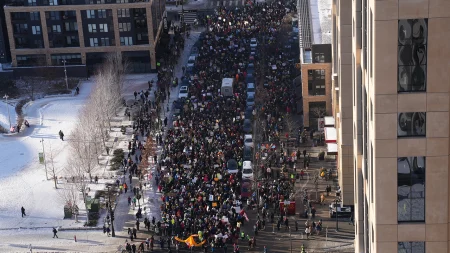When Freedom Comes with Exile: The Complex Reality of Israel’s Palestinian Prisoner Release
Families Torn Between Joy and Heartbreak as 250 Life-Sentence Prisoners Gain Release
In a landmark decision that has sent ripples through Israeli and Palestinian communities alike, Israel has agreed to release 250 Palestinian prisoners serving life sentences, with many facing forced exile as a condition of their freedom. This development, part of broader diplomatic negotiations, has created a stark dichotomy of emotions among affected families – euphoria for some, devastating disappointment for others.
The announcement came after months of intense behind-the-scenes negotiations involving international mediators. For families who have endured decades of separation from loved ones imprisoned in Israeli facilities, the news triggered celebrations in parts of the West Bank and Gaza. Yet for others whose relatives’ names were conspicuously absent from the release roster, the announcement only deepened their despair in what has become a poignant illustration of the human cost of the ongoing conflict.
The Bitter Price of Freedom: Exile and Its Implications
“My son will breathe free air after 18 years, but not the air of his homeland,” said Fatima Al-Najjar, mother of 43-year-old Mahmoud, who was sentenced to life imprisonment in 2005 for his involvement in militant activities against Israel. Mahmoud is among approximately 170 prisoners who will be released on condition they leave Palestinian territories entirely – most destined for Turkey, Qatar, or other countries willing to accept them.
This exile requirement has transformed what would otherwise be an unmitigated celebration into something more complicated. For many families, the joy of reunion comes paired with the pain of displacement. Social scientists and human rights advocates have raised concerns about the psychological impact of forcing individuals to choose between continued imprisonment and permanent separation from their homeland. Dr. Sarah Bennington, a specialist in post-incarceration trauma at Oxford University, notes that “forced exile creates a secondary punishment that extends beyond the prison sentence itself, potentially causing severe identity disruption and complicating reintegration.”
The Israeli government has defended the exile stipulation as a necessary security measure. “These individuals were convicted of serious security offenses,” stated Israeli Justice Minister in a press briefing. “The exile requirement balances humanitarian considerations with our paramount obligation to protect Israeli citizens.” Security analysts point out that previous prisoner releases without such conditions have sometimes resulted in recidivism, with some released prisoners returning to militant activities.
Celebrations and Shattered Hopes: The Human Stories Behind the Numbers
In Hebron, the Al-Tamimi family prepared a welcome celebration for their son Khalid, imprisoned for 15 years. “We have painted his room, bought new clothes, and prepared all his favorite foods,” said his sister Leila, tears streaming down her face. “Even if he must leave for Jordan next month, we will have these precious weeks together.” The family has already begun the painful process of deciding which mementos and family photographs Khalid should take with him into exile.
Meanwhile, in a modest apartment in Ramallah, Samir Abu Zayed received the news that his brother Ibrahim was not on the release list despite serving 22 years of a life sentence. “We had already begun preparations when we heard rumors of the release,” he explained, gesturing toward a half-decorated living room. “Now we must pack everything away again and tell the children their uncle will not be coming home.” The Abu Zayed family represents hundreds of others who experienced the emotional whiplash of raised and then crushed hopes.
Palestinian advocacy groups have criticized the selection process as opaque and politically motivated. “There appears to be no clear criteria for who was included and who was excluded,” said Amal Nashashibi of the Palestinian Prisoners’ Rights Association. “Some prisoners serving multiple life sentences were selected while others with shorter sentences were not. This has created confusion and additional heartache for families.” Israeli authorities maintain that the selection process incorporated multiple factors including security assessments, humanitarian considerations, and diplomatic priorities.
The Politics and Diplomacy Behind the Release
The prisoner release represents one element in a complex diplomatic equation involving multiple stakeholders. Political analysts suggest the timing coincides with several regional developments, including efforts to normalize relations between Israel and additional Arab states following the Abraham Accords framework. Additionally, pressure from international human rights organizations has intensified following reports about detention conditions in Israeli prisons.
“This is a calculated diplomatic move rather than a purely humanitarian gesture,” explained Dr. Jonathan Reichman, professor of International Relations at Columbia University. “Israel gains significant diplomatic capital with minimal security risk by releasing prisoners who will be removed from the immediate theater of conflict.” The announcement has indeed been met with cautious positive responses from several European countries and tentative acknowledgment from the United States State Department as a “step toward de-escalation.”
Palestinian Authority officials have offered mixed reactions, celebrating the release while criticizing the exile requirements and the limited scope. “We welcome the return of our sons and daughters to freedom, but we reject the notion that Palestinians must choose between imprisonment and exile from their homeland,” stated a senior PA representative. Hamas officials, meanwhile, have claimed the release as a victory for “resistance pressure” while simultaneously demanding more comprehensive action.
Reintegration Challenges: When Freedom Brings New Struggles
For those fortunate enough to be included in the release, significant challenges await. After years or decades of incarceration, many face a profoundly changed world. Technological advances alone present a steep learning curve for those imprisoned before smartphones and social media became ubiquitous. “I left a world with basic mobile phones and returned to one where children carry computers in their pockets,” remarked Ahmed Darwish, released in a previous prisoner exchange after 16 years in prison.
The psychological adjustment can be equally daunting. Institutionalization effects, sometimes called “prison dependency,” can make everyday decisions overwhelming for the newly released. Those facing exile confront additional layers of adaptation – new languages, unfamiliar cultures, and the absence of family support networks. Several humanitarian organizations have developed specialized programs to assist with this transition. The International Committee of the Red Cross has established coordination with receiving countries to ensure continuity of medical care, while NGOs like Prisoners Without Borders provide cultural orientation and vocational training.
“The first year of freedom is often the most difficult,” explained Dr. Maya Goldstein, a psychologist specializing in post-incarceration adjustment. “There’s an expectation that release should bring pure happiness, but many experience profound anxiety, sleep disturbances, and difficulty with interpersonal relationships. When exile is added to this equation, the adjustment becomes exponentially more complex.”
The Broader Implications for Peace Prospects
As buses carrying the first group of released prisoners departed from detention facilities under heavy security, observers questioned what implications this development might have for broader peace prospects. Conflict resolution experts suggest prisoner releases historically serve as confidence-building measures that can facilitate further dialogue, yet the limited scope and exile conditions attached to this particular release may diminish its potential positive impact.
“Genuine reconciliation requires addressing the underlying causes of conflict, not just managing its symptoms,” noted Ambassador Charles Wellington, former UN Special Envoy to the Middle East. “While prisoner releases represent important humanitarian action, they must be part of a comprehensive approach that addresses fundamental issues of rights, security, and sovereignty for both Israelis and Palestinians.”
The coming weeks will reveal much about the practical implementation of the release agreement and its reception among various constituencies. For families reuniting with loved ones, even temporarily before exile takes effect, these days represent precious time to rebuild connections shattered by years of separation. For those whose relatives remain behind bars, the struggle continues with renewed determination.
As Mariam Khatib, whose son remains in prison despite hopes for his inclusion in the release, said while wiping away tears: “Today I cry, but tomorrow I will continue to advocate for my son and all the others. One day, they will all come home – not to exile, but to freedom in their own land.” Her words capture the complex emotional landscape of a development that brings both healing and heartbreak to a community long accustomed to both.







